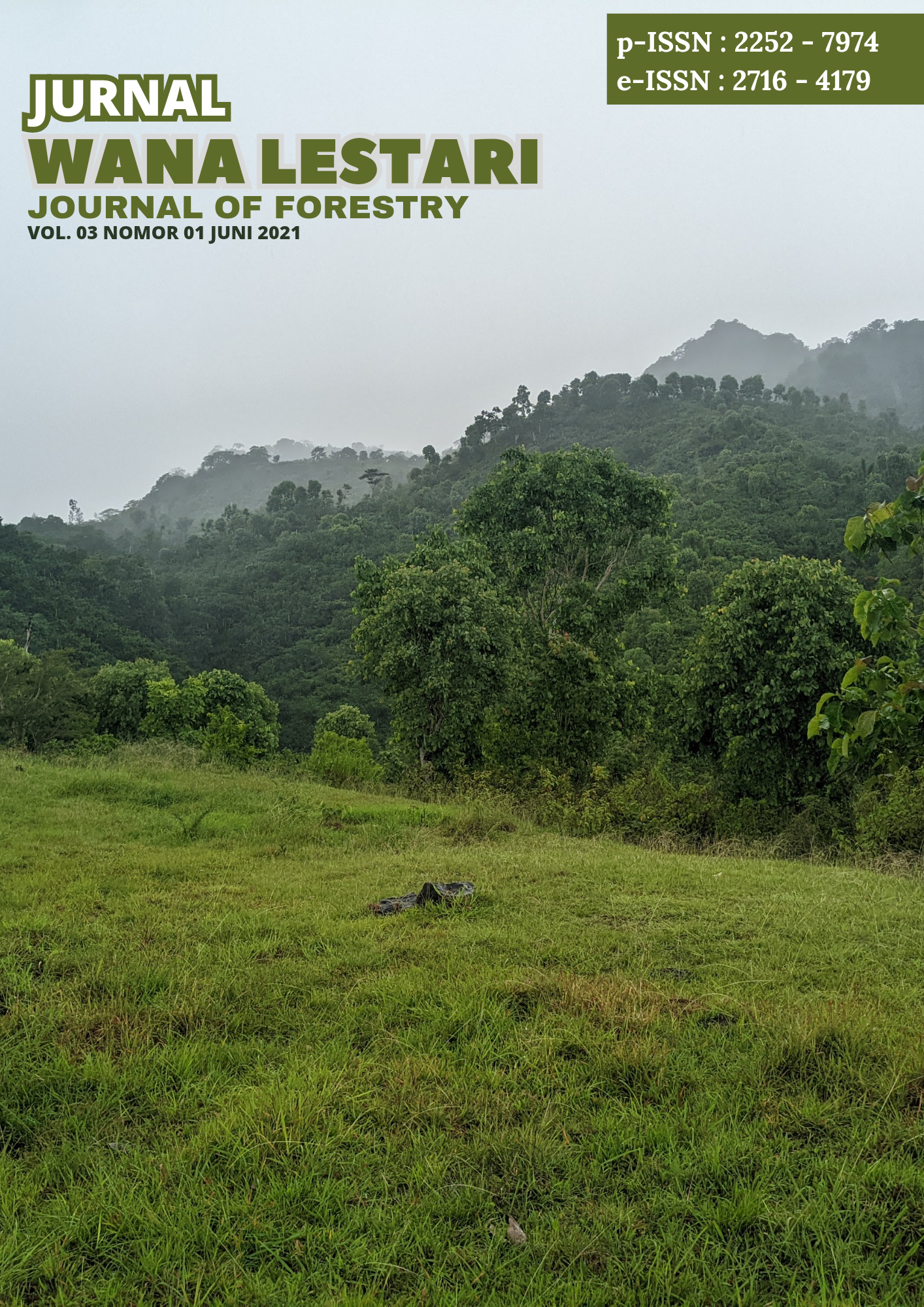ANALISIS PEMASARAN HASIL HUTAN BUKAN KAYU PADA SISTEM AGROFORESTRY DI DESA OEBELO KECAMATAN AMANUBAN SELATAN KABUPATEN TIMOR TENGAH SELATAN
Abstract
This research was conducted to determine the marketing of Moringa seeds as Non-Timber Forest Products in the Agroforestry System. This research was conducted in Oebelo Village, Amanuban Selatan District, South Central Timor Regency, which was conducted for 1 month, from June to July 2020. This study used a survey method with analysis. data using descriptive and quantitative analysis. The data is processed using the formula for calculating marketing margin (M), Farmer's Share (FS), marketing profit and R/C ratio. The results showed that the cultivation of Moringa oleifera Lamk. Using an agroforestry system with Alley cropping and mixed cropping can increase the economy of the farmers in Oebelo Village. This is evidenced by looking at the total production of Moringa seeds, which is 12,950 kg / year with a total land area of 37.5 hectares. Each farmer sells Moringa seeds at a price of Rp. 25,000 / Kg to collectors in Oebelo Village, then collectors sell Moringa seeds for Rp. 30,000 / Kg to final consumers. So that the marketing margin is Rp. 5,000 / Kg with marketing costs for farmers is Rp. 9,810 / Kg and the marketing cost for collecting traders is Rp. 168.10 / Kg. Thus, the profit obtained by farmers is Rp. 15,190 / Kg and the profit earned by collectors is Rp. 4,831 / Kg. while the farmer's share is 83.33%. Economically, the marketing business of Moringa Seed as Non-Timber Forest Products in the agroforestry system in Oebelo Village, Amanuban Selatan District, South Central Timor Regency is profitable for farmers because the results of the analysis show that the R / C Ratio is more than one, namely 1.54. Meanwhile, for collectors it is not profitable because the R / C ratio shows the number <1 is 0.28

 Friska Sempau(1)
Friska Sempau(1)







